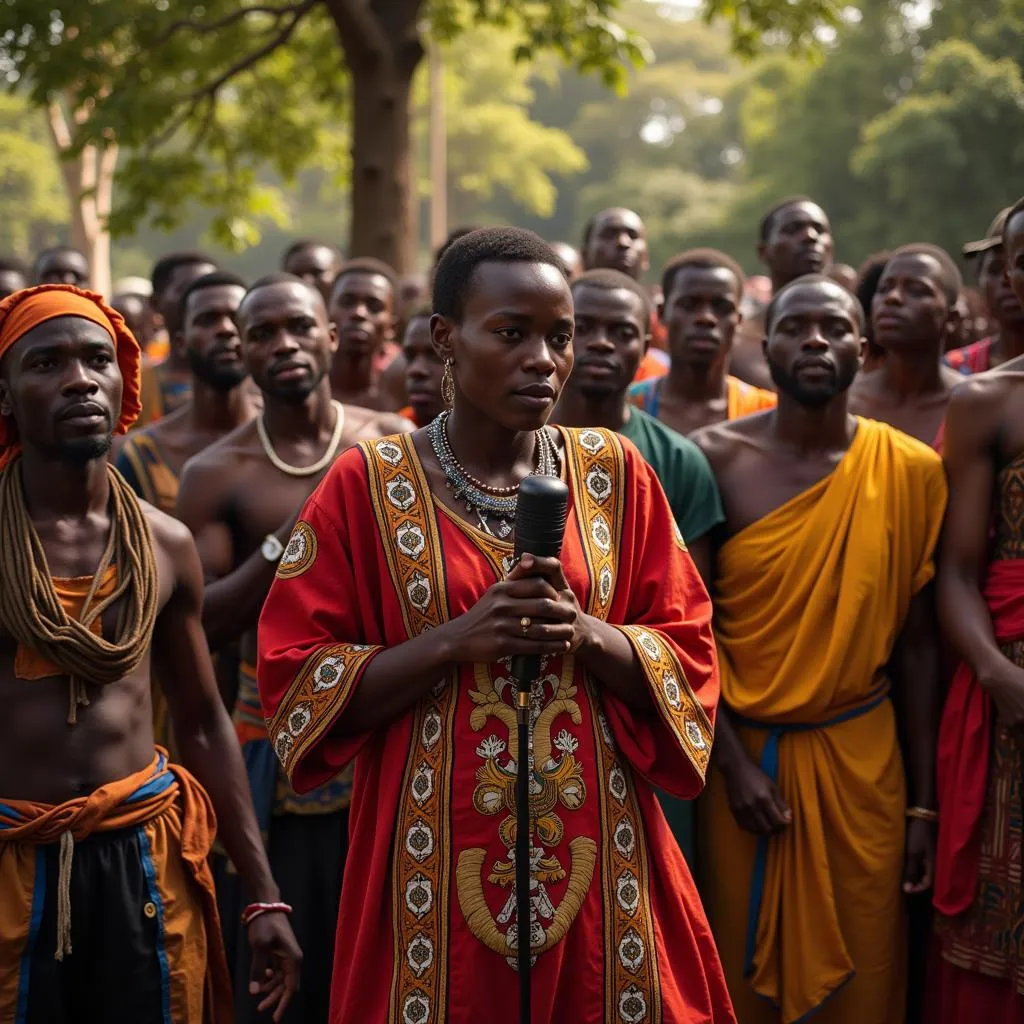Unmasking the Realities of African American Colonization
African American Colonization, a complex and often misunderstood chapter of history, refers to the efforts to relocate free Black Americans to colonies outside the United States. This movement, rooted in a mixture of racism, paternalism, and utopian ideals, gained traction in the early 19th century and had a profound impact on the lives of thousands.
The Genesis of African American Colonization
What motivated this movement? The American Colonization Society (ACS), founded in 1816, spearheaded the colonization effort. Their motivations were multifaceted and complex, ranging from a belief in the inherent inferiority of Black people and the impossibility of racial harmony to a genuine, albeit misguided, desire to offer free Black Americans a better life away from the pervasive racism of the US. 10 african culture Many supporters, including prominent figures like Henry Clay and Francis Scott Key, saw colonization as a solution to the “problem” of free Black people in American society.
Liberia: A Promised Land?
Where did they go? The ACS primarily focused on establishing the colony of Liberia on the west coast of Africa. The first settlers arrived in 1822, facing immense hardships, including disease, hostile indigenous populations, and a lack of resources. Despite these challenges, Liberia eventually declared independence in 1847, becoming the first republic in Africa.
Examining the Complex Motivations
Why was Liberia chosen? The choice of Liberia as a colonization site reflected the prevailing racial biases of the time. It was seen as a way to remove free Black Americans, perceived as a threat to the social order, from the United States while simultaneously expanding American influence and trade in Africa. The ACS argued that returning Black people to Africa was a benevolent act, offering them freedom and self-governance in their “ancestral homeland.” african flag that looks like usa flag However, this rhetoric ignored the fact that many free Black Americans had been born and raised in the US, with little to no connection to Africa. They considered themselves Americans and resisted the idea of being forced to leave their homes.
Opposition and Resistance
How did African Americans react? The colonization movement faced significant opposition from within the Black community. Figures like Frederick Douglass and David Walker powerfully argued against emigration, emphasizing the right of Black people to full citizenship and equality in the United States. They viewed colonization as a racist scheme designed to further disenfranchise and marginalize Black Americans.  African American abolitionists protesting colonization efforts.
African American abolitionists protesting colonization efforts.
The Legacy of Colonization
What is the lasting impact? African American colonization remains a controversial topic, with its legacy debated to this day. While it did result in the establishment of an independent nation, it also inflicted lasting trauma on those forced to leave their homes and families. The colonization movement ultimately failed to achieve its goals of removing a significant portion of the Black population from the United States. It served, however, as a stark reminder of the deep-seated racism that permeated American society during this era. african capitalism the stru
A Historian’s Perspective
Dr. Amadi Asante, a renowned historian specializing in the African diaspora, offers this insight: “The colonization movement, while presented as a benevolent solution, was ultimately a reflection of the racial anxieties of the time. It underscored the deep divisions within American society and the struggle for Black liberation.”
Conclusion
African American colonization, a complex and controversial historical event, highlights the enduring struggle for racial equality in the United States. new african sex video While the movement ultimately failed to achieve its aims, its legacy continues to shape our understanding of race relations and the fight for justice. Understanding this history is crucial to comprehending the ongoing fight for racial equality and social justice. african countries never been colonized
FAQ
-
Who founded the American Colonization Society? The American Colonization Society was founded in 1816.
-
Where was Liberia established? Liberia was established on the west coast of Africa.
-
Why did some African Americans oppose colonization? Many African Americans saw colonization as a racist scheme to remove them from the United States.
-
Who were some prominent opponents of colonization? Frederick Douglass and David Walker were prominent opponents of colonization.
-
When did Liberia declare independence? Liberia declared independence in 1847.
-
What were the motivations behind the colonization movement? Motivations were complex, ranging from racism to a desire (albeit misguided) to offer free Black Americans a better life.
-
What was the impact of colonization on Liberia? Colonization had a profound and lasting impact on Liberia, shaping its history and development.
For further assistance, please contact us at Phone: +255768904061, Email: kaka.mag@gmail.com or visit our office at Mbarali DC Mawindi, Kangaga, Tanzania. We have a 24/7 customer service team.


